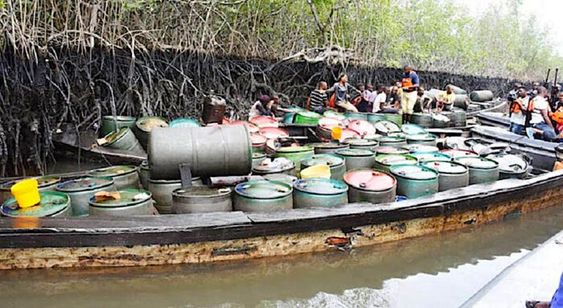Business
FG consults oil professionals on how to address issues facing the local sector

Oil and gas professionals have been invited by the federal government to suggest long-term solutions to problems in the regional oil business, such as low productivity, oil theft, pipeline vandalism, and gas flaring.
The call was made on Monday in Abuja at the start of the third Biennial International Conference on Hydrocarbon Science and Technology (ICHST 2023). Sen. Heineken Lokpobiri is the Minister of State for Petroleum Resources (Oil).
The conference, organised by the Petroleum Technology Development Fund (PTDF) and organised by the Petroleum Training Institute (PTI), aimed to revive the nation’s apparent decrease in oil production and embrace cutting-edge research as used by wealthy countries.
According to Lokpobiri, Nigeria has played significant roles in the global oil business, particularly in Africa, which is why it needs to maintain its position.
“Nigeria has played a significant role in the global and African oil and gas industries. We must face challenges and pay attention to what is popular around the world if we want to maintain our position in the world.
“At the conclusion of this conference, I expect us to develop original solutions to deal with the issues facing the petroleum business.
““Nigeria has so many issues in the industry, and I think the conference will produce documents that are both implementable and solutions to these problems,” he said.
Dr. Henry Adimula, Principal/Chief Executive, PTI, also spoke at the conference and stressed the need of directing the course of Nigeria’s oil and gas industry.
The conference’s main goal, according to Adimula, was to investigate, analyse, and contribute to a future rife with opportunity.
He acknowledged the PTI’s groundbreaking study, which had greatly affected the talks.
“PTI’s formulation of Modified Unit Technical Cost Model for oil and gas investment, along with the development of economic models for gas investment covering the upstream, midstream, and downstream sectors, guarantees accurate calculation of the cost to generate a standard cubic foot of gas.
These accomplishments demonstrate PTI’s commitment to use hydrocarbon resources in a creative and environmentally friendly manner, he said.
READ ALSO: Sanusi: oil production in Nigeria is insufficient to make the country wealthy
Adimula claimed that its joint research with the Research and Development Division of the Nigerian National Petroleum Corporation has led to the development of a practical method for storing compressed natural gas (CNG) in propelled tricycles.
According to him, this innovative project represents a significant step towards renewable energy sources and cleaner transportation options.
He said that the company’s efforts in research and invention had paid off, particularly when it came to obtaining a patent for a “Method of Improving the Rheological Properties of Potassium-Based Bentonite Clay” under Nigerian Patent No. NG/P/2020/200, which had been properly registered with the Nigerian Patents and Designs Registry.
He said that these developments demonstrated the company’s unwavering commitment to environmentally friendly and sustainable business practises and served as evidence of our unwavering focus to ground-breaking research and development.
In his speech, Mr. Ahmed Aminu, the Executive Secretary of the PTDF, who was represented by Mrs. Ifeoma Nwokike, General Manager Projects, stated that the oil and gas industry, particularly in Nigeria, was at a crossroads of intricate problems and unheard-of potential.
Aminu claims that the business struggles with a wide range of problems, including technological barriers, restrictions on research, and a shrinking market for investments and financing.
He claimed that the predicament demonstrated how crucial it is to increase research investment and technological advancement in order to grow the industry.
“A hopeful panorama of opportunities that can reinvigorate the industry” are presented by the anticipated start-up of the Dangote Oil Refinery, the construction of crucial pipeline infrastructure like the AKK, and the production initiatives at Komani oil field in Northern Nigeria, he said.
The most likely victims of a quick energy transition, according to Dr. Omar Ibrahim, Secretary-General of the African Petroleum Producers’ Organisation (APPO), are developing nations, particularly those in Africa.
Ibrahim claimed that the group had a significant impact on the industry by recognising three impending challenges: technology, skills, and markets.
The proposals of the APPO Long Term Strategy Committee to take three practical steps to confront the impending difficulties were agreed by the APPO Ministerial Council in order to achieve this future, he said.
“The Future of the Oil and Gas Industry: Opportunities, Challenges, and Development” is the conference’s theme. (NAN)
